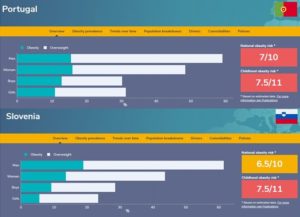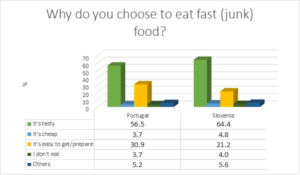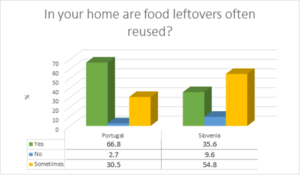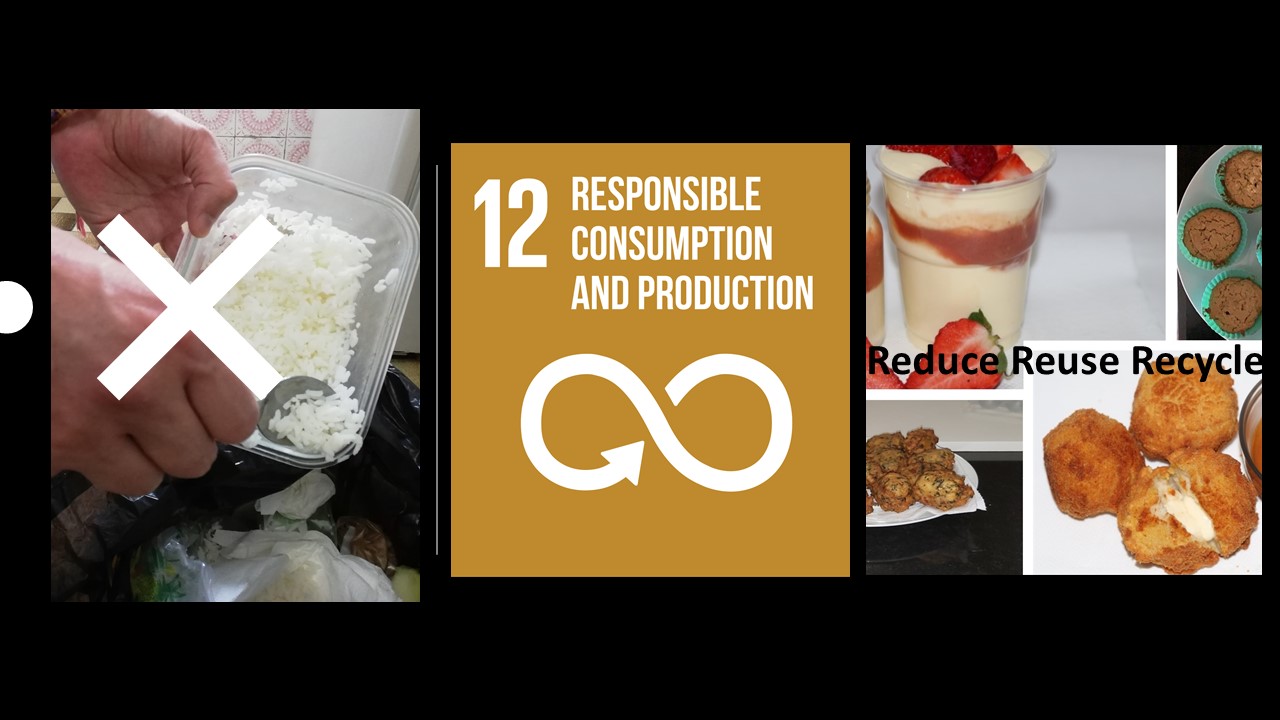Considering the consequences either to the human health and to the environment, two striking statistical data are worth reflecting: The Fast Food market size is calculated to be $647.7 billion in 2021 and is estimated to reach $931.7 billion by 2027(1); on the other hand, according to the U.N., 1.3 billion tonnes of food are lost or wasted every year around the world.(2)
How can these statistics be explained? What do these statistics imply?
Fast Food – risks and popularity
From 79 B.C in Pompeii up to 1860s fish and chips shops in Britain or to the 1950s American Drive-through restaurants, Fast Food has become a global phenomenon.
According to the Portuguese Chef Gonçalo Costa “The concept of Fast Food refers both to the speed of its preparation and to the concept of Junk Food, which implies low quality food, low nutritional value and highly caloric” or as Slovenian Chef Uroš Šporar explains “it can not be compared to home cooked food. It’s not healthy, it only saturates us for the moment, but brings up more harm than good.”
The regular consumption of junk food can cause various health problems, for instance, type-2 diabetes , cardiovascular diseases, some types of cancer as well as increasing the likelihood of getting a stroke or neurological consequences as “it ends up not providing the important nutrients for the proper functioning of the body” as stated by the gym instructor Luís Pacheco.

Fig 1 Portugal and Slovenian obesity risks
Overweight is often related to Fast Food too. In Portugal, 1.4 million people have to deal with obesity in their lives; Ana Rito, Portugal Principal Investigator for COSI, observed that, despite “the decrease in overweight and obese children, it remains one of the highest rates in Europe.”(3) In Slovenia, these numbers are slightly better, but the childhood obesity risk is also a problem. (4) (Fig:1)
Despite the risks, Fast Food has become especially popular among young adults and adolescents.
Taste, price and convenience can explain its broad consumer appeal.
Nutritionist Fátima Cunha states “Most of us have an appetite for the sweetest, crispier and saltier things, [that’s why] Junk Food can become an addiction and it is cheaper too”, which can be explained by “effective marketing campaigns and mass production; the cost of production is lower and, inevitably, Fast Food prices will also be lower”, as nurse Mariana Almeida defends.
Furthermore, nowadays we live fast-paced times, more than ever before. People are often focused on their professional lives, not having time to worry about cooking healthy meals. “Junk Food is fast and practical to get”, says Luís Pacheco.

Fig.2 School Survey results on reasons to choose Fast Food.
These assumptions confirm the survey results on Fast Food held by the YRE – Portugal, a random sample of 404 respondents / 95% significance and 4% of margin for error; Slovenia 104 respondents, / 95% significance and 8% of margin for error. (Fig.2)
But Fast Food does not necessarily mean unhealthy food.
Fast healthy Food
Fátima Cunha suggests “instead of chips, we should choose to make small baked potatoes in the oven or you can cook sautéed vegetables that in 5 minutes are placed in a frying pan with a drizzle of olive oil and a pinch of salt or aromatic herbs.”
Furthermore, “The process of making recipes can be fast, diversified and, at the same time healthy, rich in nutrients and sustainable.” Gonçalo Costa assumes, “The Mediterranean Diet can be adapted to Fast Food including dishes such as sardine bruschettas, a broccoli salad with pear and pesto, a vegetable and hummus sandwich or a pizza based on cauliflower, among others, which can be prepared in less than 20 minutes.”
It is a question of planning meals, which is also exceedingly important to diminish our impact on food waste.
Food Waste
Food waste is detrimental to humanity. When food is lost or wasted, resources used in its production – e.g., water, land, energy – are wasted too. In addition, the disposal of food loss and waste in landfills, leads to greenhouse gas emissions, contributing to climate change.
In Europe over 50% food waste in the EU comes from normal families. According to Statistics, on average Slovenia wastes 68 kg per capita, where almost 73 200 tons in household wastes, while Portugal has 132 kg per capita and 324 thousand tons of household wastes. (5)(6)
Besides governmental regulation, NGOs involvement like Refood, which delivers leftover meals from canteens, restaurants and caterings to needy people, or the effort of food retailers and suppliers to increasingly make their products not only healthier, but also more environmentally and socially sustainable, consumers / families have a rather important role to play.
Food Responsible consumption
Chef Uroš Šporar defends “Responsible food consumption is respect towards food, respect towards those who produced it. [It means] we don’t take more than we can eat, don´t buy more than we consume”, but most importantly, responsible consumption of food is respect towards the environment.
“That is up to each one of us to achieve, “Gonçalo Costa says, “It is important to be aware and critical about the products we consume, what their nutritional value is (in terms of fats, of which saturated; carbohydrates, of which sugars, fibers, protein and salt) and about the processes by which the product had to pass until it reaches the consumer (e.g., the chemical additives). Prioritizing fresh products, given its greater nutritional profile and of local origin, as they have a smaller ecological footprint and help the adjacent economy. Above all, responsible consumption must be based on the balance of different nutrients and components so that we are able to give the best to our organism and our society.
Similar message is conveyed by Fátima Cunha “if we vary, if we don’t always eat the same thing we’re already being responsible, if we increase vegetables or salads we’re also reducing the ecological footprint.”
Even though much food is wasted in the early stages of the food supply chain, consumers are still the main source of food waste, and the change depends either on how and what to consume or on how to avoid kitchen leftovers. Therefore, raising awareness among consumers and families is essential.

Fig 3 Survey results on reusing kitchen leftovers.
According to the YRE survey some food leftovers are still wasted; Reusing them it has not become a Family routine (Fig 3)
A group of Portuguese students have come up with “a simple, but effective mantra: PPS – PLAN PREPARE SPARE/SAVE”, Diogo defends proudly, “We need to PLAN meals before we PREPARE them as well as SPARE / SAVE the foods or ingredients we waste while preparing the dish and the kitchen leftovers. “
This idea came up as some Portuguese students and their families joined a project, named “Na minha casa não desperdiçamos!” (“In my home we do not waste!”), which aims to raise awareness about the amount of food wasted daily per family. As the project evolved some tips and recipes were created as a family activity, and two Slovenian YRE students, Lea and Anja, joined the project too. As a final product it was created an e-book titled Food leftovers – tips and tricks that families have access at the link: https://issuu.com/alic171717/docs/ebook.
Regarding this activity, a mother refers that being involved in the project was important because “it helps develop household management skills, and the new generations will have a more active and conscious role in the management of the planet’s resources”. The school parents’ representative, Ana Rita Ventura, believes that “family involvement is truly relevant to change behaviours and better understand the amount of waste produced. School does not only exist for the syllabus content, but also to address more involving social and environmental issues. And who else but the youngest to give visibility and bring these problems to the open”. A mother refers that “being involved in the project was important because “it helps develop household management skills, and the new generations will have a more active and conscious role in the management of the planet’s resources”.
The future
The world’s population is constantly growing. There can be no sustainable development without sustainable consumption and production first.
“Earth’s resources are finite and taking care of them is a daily mission that should be part of everyone’s routine. (. . .) With a few gestures, we can all help reduce our impact on the environment, making life on the planet more sustainable.” Gonçalo Costa postulates,“For this, it is necessary to be attentive to new initiatives and cooking techniques and to remain informed and educated. If everyone does their part, the positive impact will be more visible.”
References
(1) Market Data Forecast (2020). Fast Food Market. Retrieved from: https://www.marketdataforecast.com/market-reports/fast-food-market
(2) United Nations (2013). UN report: one-third of world’s food wasted annually, at great economic, environmental cost. Retrieved from: https://news.un.org/en/story2013/09/ 448652
(3) WHO (2020). Portugal brings down obesity by taxing sugary drinks. Retrieved from: https://www.euro.who.int/en/countries/portugal/news/news/2020/3/portugal-brings-down-obesity-by-taxing-sugary-drinks.
(4) Global Obesity Observatory (2020). Retrieved from: https://data.Worldobesity.org/ country/slovenia-194/
(5) Republic of Slovenia Statistical Office (2021). Food Waste, Slovenia, 2018. Retrieved from: https://www. stat.si/StatWeb/en/News/Index/8433
(6) OECD (2021). Municipal waste. Retrieved from: https://data.oecd.org/portugal.htm




You must be logged in to post a comment.